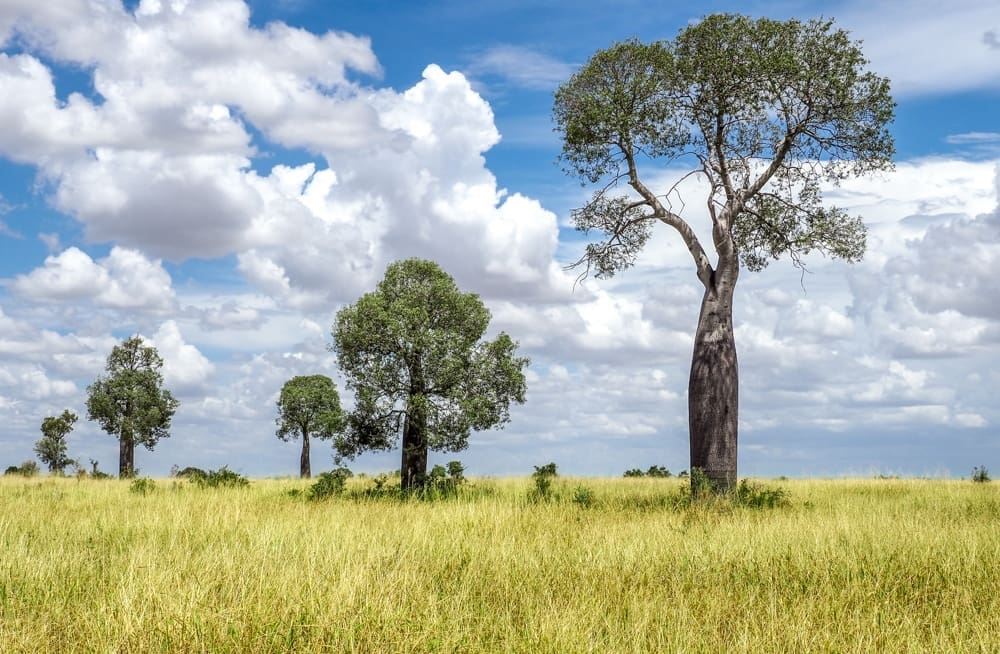FARMING groups are gearing up for a fight to prevent buffel grass from being added to a Federal register of “Weeds of National Significance”.
The Federal Department of Agriculture, Fisheries and Forestry is in the process of updating the register for the first time in 13 years, and is expected to publish newly nominated species being considered for the list in coming weeks.
Expanding the Federal weed register to include buffel grass, a widely relied upon livestock feed source in northern Australia, would “inflict a devastating blow” to northern grazing systems, and would also decimate grasslands dominated by buffel grass and create significant top-soil loss, farming groups say.
Long-running trials in Queensland have also demonstrated that Buffel grass varieties are among the most tolerant to pasture dieback.
Environmental groups have lobbied for decades to have buffel grass declared as a weed, describing it as a monoculture that out competes native grasses and threatens biodiversity and conservation values in Australian rangelands.
Critics of buffel also say it increases fuel loads that produce hotter and more intense wildfires.
Some scientists have even claimed buffel grass is as damaging to inland Australia as feral cats.
Last year the Northern Territory government followed South Australia and declared buffel grass a weed.
The NT Govt said it would develop a formalised weed management plan with $750,000 set aside to strategically manage the grass in Central Australia.
This plan is still in development, according to a message posted to an NT Govt website last week, which is calling for “general public input” into buffel grass management in the NT – a link to enable people to access the survey is expected to go live soon (Beef Central will update this report when the link is available).
Nominations for nationally significant weeds to be considered for inclusion on the 2025 Weeds of National Significance registered closed on 12 January.
What farming groups say:
A Feed of National Signficance: NFF
In an earlier media release, NFF Sustainable Development and Climate Change Committee chair Angus Atkinson described calls to declare a productive agricultural plant as a
Weed of National Significance (WoNS) misinformed, and said it risked inflicting a “devastating blow” to northern grazing systems.
Buffel grass was carefully managed by producers to support grazing operations, he said, while the significant environmental co-benefits it provided, including land rehabilitation and erosion mitigation, were “conveniently ignored by environmental groups”.
“Our members would much rather see it listed as a Feed of National Significance,” he said.
A different process for contentious plants that acknowledged the economic value of plants like buffel was needed, he said.
Buffel feeds Australia, bureaucracy will starve it: AgForce
AgForce Cattle Board President Lloyd Hick said the push to list buffel as a Weed of National Significance (WoNS) was a direct threat to one of the most critical pasture species in Australia.
“If listed, buffel could face legislative restrictions, removal requirements, and even biological control research aimed at eradicating it.
He also hit out at the determination process which he described as fundamentally flawed and “anything but transparent” – “there is no confirmation on who has nominated buffel, and there is no formal appeal mechanism once a species is listed.
“A decision with such far-reaching consequences cannot be made behind closed doors.
“Buffel is not a weed. It is the backbone of Queensland’s grazing systems. It sustains the production of millions of kg’s of beef that underpin domestic and international food security.
“Removing access to buffel would cripple the beef industry. Restricting seed supply would undermine pasture regeneration, and any move towards biological control would be catastrophic for entire grazing regions.
“The economic damage would be widespread, yet, and most critically, the nomination process fails to consider the production and financial consequences of its removal.”
“Buffel also plays a vital role in landscape protection. It prevents soil erosion, reduces dust storms, and regenerates quickly after fire. At a time when sustainability reporting is becoming more complex, a WoNS listing would add unnecessary compliance burdens, affecting market access, financial approvals, and long-term property viability.”
Mr Hick said the move was not an isolated issue but part of a broader pattern of decisions being made without industry input, with disastrous consequences for agriculture.
“If the beef sector does not push back hard on this, it will be taken as a win and another critical pillar targeted next.”
Listing could lead to uncontrollable bio-control: PRA
Property Rights Australia in a post on its Facebook page urged people across the cattle industry to lobby hard to keep Buffel grass off the federal weeds of national significance list.
“If placed on the list, research will possibly be funded into a bio-control.
“The activist green groups must not be allowed to win this battle.
“Non-environmental representatives need to be made aware of how important this grass is to livestock and the environment.
“We also must make it very clear that governments or quasi government organisations have no right to release anything that will kill a valuable pasture, indiscriminately.
“We should, as a community, make it known that if they let loose with any sort of non-selective method of control, court cases will ensue and that we will support them as a community.”

